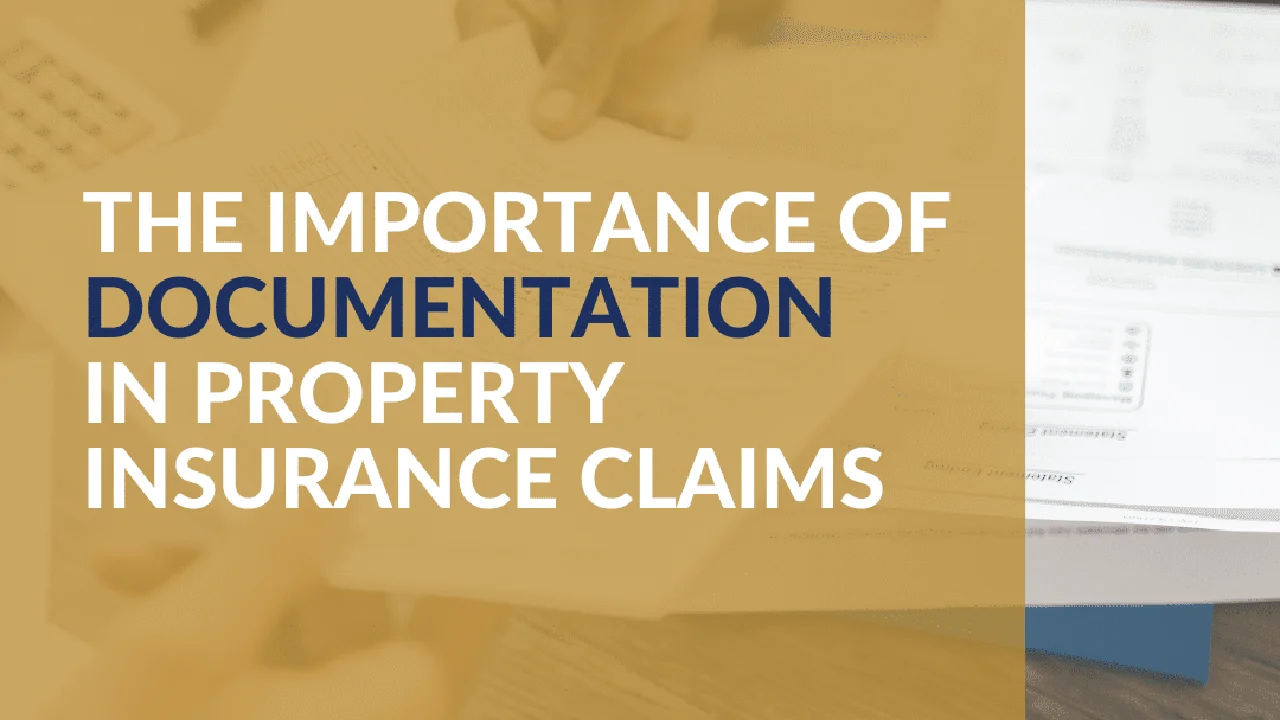Documenting Your Injuries After a Car Accident

Understanding the Importance of Documenting Injuries for Car Insurance Claims
Hey there! So, you've been in a car accident. Ugh, the worst, right? Besides the initial shock and getting your car sorted, there's the whole insurance claims process. One of the most crucial things you can do to strengthen your claim and potentially get the compensation you deserve is meticulously documenting your injuries. Why? Because insurance companies aren't mind readers, and they're definitely not on your side from the get-go. They need proof, solid evidence, to understand the extent of your injuries and how they've impacted your life. Think of it as building a case for yourself, piece by piece.
Immediate Actions After the Accident: Initial Injury Documentation for a Strong Claim
Okay, so what do you do right after the accident? First, seek medical attention immediately, even if you feel "fine." Adrenaline can mask pain. Get checked out by a doctor, urgent care, or the ER. This creates an official record of your injuries. Then, document everything! Here's what I mean:
- Take Photos: Use your phone to snap pictures of any visible injuries – cuts, bruises, swelling, scrapes, etc. Take photos of the scene of the accident as well, including damage to the vehicles involved.
- Write it Down: As soon as possible, write down everything you remember about the accident and your injuries. What did you feel? Where did it hurt? What movements were difficult? Be as detailed as possible. Don't rely on your memory alone, as it fades quickly.
- Gather Information: Exchange information with the other driver(s) involved, including their insurance information. Get contact information from any witnesses.
Detailed Medical Documentation: Building Your Case for Car Insurance Compensation
This is where things get really important. Your medical records are the backbone of your injury claim. You need to keep track of everything related to your medical treatment. Here's a breakdown:
- Doctor's Visits: Keep records of every doctor's visit, including dates, times, and what the doctor said. Ask for copies of your medical records.
- Treatment Plans: Document the treatment plan your doctor prescribes, including medications, physical therapy, and any other therapies.
- Medication Records: Keep a log of all medications you're taking, including the dosage and frequency. Note any side effects you experience.
- Therapy Sessions: Document your attendance at physical therapy, occupational therapy, or any other type of therapy. Note any progress or setbacks you experience.
- Specialist Referrals: If you're referred to a specialist (like an orthopedic surgeon or neurologist), document those referrals and any consultations you have with the specialist.
Pain Journals and Symptom Tracking: Detailed Injury Documentation for Insurance Adjusters
Beyond the official medical records, keeping a pain journal or symptom tracker can be incredibly helpful. This is where you record your daily experiences with your injuries. It helps you remember details that you might otherwise forget, and it provides valuable insight into the impact your injuries have on your daily life. Consider these points:
- Daily Pain Levels: Rate your pain on a scale of 1 to 10 throughout the day. Note what activities make the pain better or worse.
- Symptoms: Document any symptoms you're experiencing, such as headaches, dizziness, nausea, fatigue, or numbness.
- Limitations: Note any activities you can no longer do or have difficulty doing due to your injuries. This could include things like walking, lifting, driving, or sleeping.
- Emotional Impact: Don't forget to document the emotional impact of your injuries. Are you feeling depressed, anxious, or irritable? Are you having trouble sleeping? These are all important factors to consider.
Lost Wages and Financial Documentation: Quantifying the Impact of Your Injuries for Your Claim
Injuries often lead to lost wages, which can further complicate your financial situation. Documenting these losses is crucial for recovering compensation. Here's what you need to keep track of:
- Missed Workdays: Keep a record of all the days you've missed work due to your injuries. Get a note from your doctor verifying that you were unable to work.
- Pay Stubs: Collect your pay stubs to show your earnings before the accident.
- Lost Income Statement: Ask your employer to provide a statement of lost income.
- Other Expenses: Document any other expenses you've incurred as a result of your injuries, such as transportation costs to medical appointments, over-the-counter medications, and assistive devices.
Assistive Devices and Mobility Aids: Documenting Your Need for Injury Support
If your injuries require you to use assistive devices or mobility aids, make sure to document this as well. This can include things like:
- Crutches or Canes: Document the need for these devices and how long you've been using them.
- Wheelchairs or Walkers: If you require a wheelchair or walker, document the reasons why and how it has impacted your mobility.
- Braces or Supports: Document the use of any braces or supports, such as a back brace or knee brace.
- Adaptive Equipment: If you need adaptive equipment at home (like a shower chair or raised toilet seat), document the need for these items.
The Importance of Witness Statements: Strengthening Your Injury Claim with External Validation
If there were any witnesses to the accident, their statements can be invaluable to your claim. Try to get their contact information at the scene of the accident. If you're unable to do so, your lawyer can help you track them down later. Witness statements can corroborate your account of the accident and provide additional details about the injuries you sustained.
Communicating with the Insurance Company: How to Present Your Injury Documentation Effectively
When communicating with the insurance company, it's important to be organized and professional. Provide them with copies of all your documentation, including medical records, photos, pain journal entries, and lost wage information. Be clear and concise in your explanations. Don't exaggerate your injuries or provide false information. Remember, everything you say and do can be used against you. It's often best to consult with an attorney before speaking with the insurance company.
Legal Representation: When to Seek Help with Your Car Accident Injury Claim
Navigating the insurance claims process can be overwhelming, especially when you're dealing with injuries. Consider seeking legal representation if:
- You're seriously injured.
- The insurance company is denying your claim or offering a low settlement.
- You're unsure of your rights.
- The accident was caused by someone else's negligence.
An attorney can help you understand your rights, negotiate with the insurance company, and file a lawsuit if necessary.
Documenting Psychological Injuries: Addressing the Mental and Emotional Toll of Car Accidents
Car accidents don't just cause physical injuries; they can also lead to significant psychological trauma. Documenting these emotional injuries is just as important as documenting your physical injuries. This is often overlooked, but can significantly impact your settlement.
- Therapy Records: If you're seeing a therapist or psychiatrist, keep records of your sessions.
- Diagnosis: If you've been diagnosed with PTSD, anxiety, or depression, document the diagnosis.
- Impact on Daily Life: Describe how your emotional injuries have impacted your daily life. Are you having trouble sleeping, eating, or concentrating? Are you experiencing flashbacks or nightmares?
The Role of Expert Testimony: Strengthening Your Injury Claim with Professional Opinions
In some cases, you may need to rely on expert testimony to strengthen your claim. This could include testimony from medical experts, accident reconstruction experts, or vocational rehabilitation experts. These experts can provide valuable insight into the nature and extent of your injuries, the cause of the accident, and the impact your injuries have on your ability to work.
Long-Term Care and Future Medical Expenses: Projecting the Costs of Ongoing Injury Management
If your injuries are long-lasting or require ongoing medical care, you'll need to document your future medical expenses. This can include things like:
- Future Doctor's Visits: Estimate the cost of future doctor's visits.
- Future Therapy: Estimate the cost of future therapy sessions.
- Medications: Estimate the cost of future medications.
- Assistive Devices: Estimate the cost of future assistive devices.
- Long-Term Care: If you require long-term care, estimate the cost of this care.
Documenting Home Modifications: Adapting Your Living Space to Accommodate Your Injuries
If your injuries require you to make modifications to your home, such as installing ramps or grab bars, document these modifications and their costs. This can help you recover compensation for the expenses you've incurred to make your home accessible.
The Impact on Hobbies and Recreation: Documenting the Loss of Enjoyment of Life
Injuries can impact your ability to participate in hobbies and recreational activities. Document how your injuries have affected your ability to enjoy life. This can help you recover compensation for the loss of enjoyment of life.
Using Technology for Documentation: Apps and Tools for Injury Tracking and Management
There are numerous apps and tools available to help you document your injuries and manage your claim. Here are a few examples:
- PainScale: This app allows you to track your pain levels, symptoms, and medications.
- MyMedicalRecords: This app allows you to store and organize your medical records.
- Evernote: This is a great general note-taking app that you can use to create a pain journal and document your experiences.
Documenting Travel Expenses: Tracking Costs Associated with Medical Appointments and Treatment
Keep track of all travel expenses associated with your medical appointments and treatment. This can include mileage, parking fees, and tolls. You may be able to recover these expenses as part of your claim.
The Importance of Dates and Timestamps: Maintaining Accurate Records for Your Injury Claim
Always include dates and timestamps on all your documentation. This will help you maintain accurate records and ensure that your information is credible.
Product Recommendations for Injury Recovery and Pain Management
Let's talk about some specific products that can help with injury recovery and pain management. Remember to consult your doctor before using any of these.
Theragun Pro: Percussive Therapy for Muscle Relief
Product: Theragun Pro
Description: The Theragun Pro is a powerful percussive therapy device that can help relieve muscle soreness, stiffness, and pain. It uses rapid, repetitive strokes to stimulate blood flow and break up muscle knots.
Use Case: Great for post-accident muscle pain, especially in the neck, back, and shoulders. Use it to warm up muscles before physical therapy or to cool down afterward.
Comparison: There are cheaper percussive massagers available, but the Theragun Pro is known for its power, durability, and ergonomic design. Alternatives include the Hypervolt and the cheaper Lifepro Sonic.
Price: Around $599
Compex Wireless Muscle Stimulator: Building Strength and Reducing Pain
Product: Compex Wireless Muscle Stimulator
Description: A wireless muscle stimulator that uses electrical impulses to stimulate muscle contractions. This can help build strength, reduce pain, and improve circulation.
Use Case: Ideal for regaining strength after an injury, particularly in the legs or arms. Can be used in conjunction with physical therapy.
Comparison: Compex is a leading brand in muscle stimulation. Cheaper options exist, but they may not be as effective or durable. Consider the PowerDot as a more portable alternative.
Price: Around $1,200
Memory Foam Cervical Pillow: Neck Support for Pain Relief
Product: Memory Foam Cervical Pillow
Description: A pillow designed to support the natural curve of the neck, providing relief from neck pain and stiffness.
Use Case: Essential for anyone experiencing neck pain after a car accident. Helps to maintain proper spinal alignment during sleep.
Comparison: Many cervical pillows are available. Look for one made from high-quality memory foam that provides good support without being too firm. Read reviews to find one that suits your sleeping style.
Price: $30 - $80
Adjustable Lumbar Support Cushion: Back Pain Relief While Driving or Sitting
Product: Adjustable Lumbar Support Cushion
Description: A cushion designed to support the lower back, providing relief from back pain and improving posture.
Use Case: Perfect for use in the car or at the office, especially if you spend long hours sitting. Helps to maintain proper spinal alignment and reduce back pain.
Comparison: Look for a cushion that is adjustable and made from breathable material. Some cushions also have massage features. Consider the LoveHome Memory Foam Lumbar Support.
Price: $20 - $50
Biofreeze Pain Relief Gel: Topical Pain Relief for Sore Muscles
Product: Biofreeze Pain Relief Gel
Description: A topical pain relief gel that contains menthol, providing a cooling sensation that can help relieve muscle soreness and pain.
Use Case: Use for immediate relief from muscle pain and soreness. Apply to affected areas as needed.
Comparison: Biofreeze is a popular and effective topical pain reliever. Other options include Icy Hot and similar menthol-based products. Biofreeze is often preferred due to its less intense scent.
Price: $10 - $20
Final Thoughts on Injury Documentation for Car Insurance Claims
Documenting your injuries after a car accident is absolutely essential for protecting your rights and maximizing your chances of receiving fair compensation. Take the time to gather all the necessary information and present it to the insurance company in an organized and professional manner. And remember, don't hesitate to seek legal representation if you're struggling with the claims process.
:max_bytes(150000):strip_icc()/277019-baked-pork-chops-with-cream-of-mushroom-soup-DDMFS-beauty-4x3-BG-7505-5762b731cf30447d9cbbbbbf387beafa.jpg)






